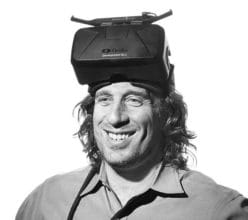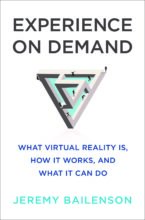 Virtual reality is getting better at simulating the real world. Can it also transform education, environmental conservation, health care? And… do we want it to? Yes, says Jeremy Bailenson, founding director of Stanford University’s Virtual Human Interaction Lab. He is speaking at the John Adams Institute on April 24th.
Virtual reality is getting better at simulating the real world. Can it also transform education, environmental conservation, health care? And… do we want it to? Yes, says Jeremy Bailenson, founding director of Stanford University’s Virtual Human Interaction Lab. He is speaking at the John Adams Institute on April 24th.
Bailenson has spent two decades researching the psychological effects of virtual reality to help people understand this powerful new tool. There are dangers and many unknowns in using virtual reality, but it also can help us hone our performance, recover from trauma, improve our learning and communication abilities, and enhance our empathic and imaginative capacities.
Bailenson’s new book, Experience on Demand, takes a long and hard look at both the risks and the potential of virtual reality. It is a must-read for navigating both the virtual and the physical worlds ahead. Join us for a discussion on how virtual reality changes our brain, and in doing so, our attitudes and behavior.






